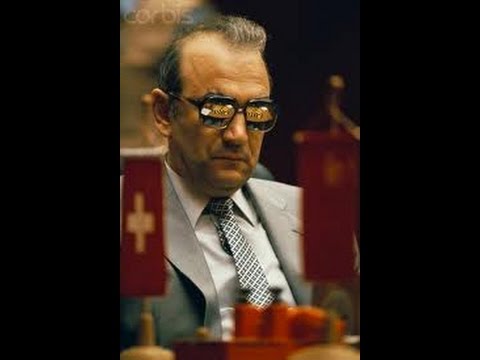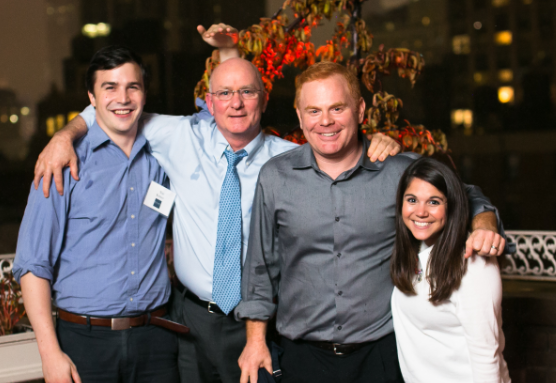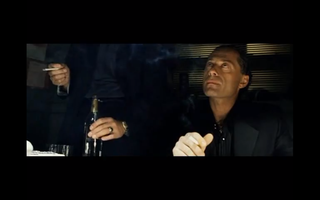Most of the readers of this blog know by now the importance I place on resilience as a quality that entrepreneurs need to possess. I'm always preaching it to my students at Columbia and to any founders I mentor. I remind them too, that no one can be resilient if they are working on something they do not care deeply about. It is simply not something one can manufacture. As an investor I'm of course always trying to determine how resilient founders are before I even consider investing- in fact I go so far as to call my investment vehicle Rugged Ventures™ so that people have an idea of the type of founders I'm looking for. I've also written here about just how much I relate to the "war-time" CEO paradigm Ben Horowitz described in his terrific book as a result of my own experiences as a founder. And yet when I talk about this quality- I always try to talk about it in the larger context of "life" - not just in the context of startups.
I winced many times when I read Ben's book. I think that's why I learned so much from it. He suffered immensely and took one battering after another. And endured.
And I winced earlier this week also, much moreso- when I learned of the passing of a personal hero of mine, the legendary Grandmaster Viktor Lvovich Korchnoi.
You may never have heard of him- but Korchnoi was a colossal figure who bestrode the stage of grandmaster chess throughout the 20th century and amazingly- well into the 21st. He took on and beat all of the greatest players in the world from as far back as Levenfish, who was born in 1889, to the current world champion, Magnus Carlsen, who was born 101 years later in 1990. He maintained this high performance level well into his 80's, whereas most grandmasters see their skills begin to recede in their 40's. He was the a four-time champion of the Soviet Union, played in ten Candidates tournaments, qualifying to play for the World Championship final twice, and defeated nine world champions multiple times during his life. His achievements in chess were simply spectacular.
Yet he is also known as perhaps the strongest player in world history never to be world champion. His life and career were full of bitter and devastating disappointments, immense sacrifices, enormous suffering and endless struggle.
Reading the story of his life would make anyone wince- after all- for most of us, our lives have been so much easier by comparison. Few human beings were forged of the same steel as Korchnoi.
I should first mention that he and his family endured and survived the great Siege of Leningrad when he was just a ten year old boy. This no doubt indelibly shaped his personality and mindset. This was a 2.5 year-long siege that saw famine and illness lead to the deaths of 1.5 million people and the evacuation of a similar amount. It is considered to have been "the greatest destruction and the largest loss of life ever known in a modern city". As a chess-player it should be mentioned that he was no prodigy- only rising to the elite ranks after enormous effort and several decades of work. Upon reaching this pinnacle, the Soviets elected to favor the younger Karpov over him to be their champion and protege, limiting Korchnoi from playing in prestigious international tournaments. He bristled under this suffocating climate and became the first top-flight Soviet grandmaster ever to defect from the Soviet Union. He sacrificed everything and became persona-non-grata thereafter - the utterance of his name was not countenanced in his native country for decades to come. He was separated from his wife and son who were subsequently imprisoned during the course of what became his one-man-battle against the might of the Soviet regime, in which he fought his way- match after grueling match to twice qualify as the finalist to vie for the world championship head-to-head against his great foe and nemisis, Anatoly Karpov.
The matches against Karpov are the stuff of legend and are renowned by the chess community worldwide. Books have been written about the wild, paranoid atmosphere of these titanic clashes. The regime marshaled every possible advantage they could exert against the dissident including recruiting the greatest Soviet grandmasters and trainers to prepare Karpov night and day before the match started. During the 1978 world championship match they even went so far as to install a noted mystic/hypnotist by the name of Dr. Zukhar in the front row to distract Korchnoi throughout the games and let fly the rumor that Korchnoi's son had been imprisoned and was being tortured. Imagine attempting to compete at the highest level in such a forbidding atmosphere.
And yet Korchnoi endured and fought back tooth and nail. Notice in the photo below the mirrored glasses he wore to counter-act the effect of the Soviet hypnotist.
In this particular world championship contest, though trailing for most of the match, Korchnoi mounted a legendary rally to draw level with Karpov- only to lose the final game in heartbreaking fashion.
And yet still he endured and kept rising to the challenge- again and again- never relenting.
I've been thinking about him all week and I realize that we should not wince for him nor lament his great disappointments. He himself would never have countenanced it- and he would have uttered one of his memorable caustic remarks to accompany his disdain for people's sympathies. That is because he relished the struggle and came fully alive when he encountered these enormous challenges. It was who he was- he reveled in it. He was a survivor and a fierce fighter- and it was his pure love for his craft- his art- that made him a symbol for all those who dare to take up the mantle and fight for their beliefs and for what they love. He was resilience personified.
RIP, Viktor Lvovich Korchnoi














